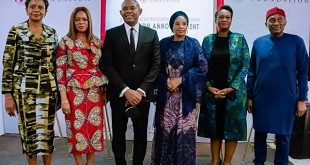
By Andrew M.Mwenda
If you criticise the opposition about their lack of an alternative policy, they do not present it, they instead accuse you of having been bought by the President.
A striking feature of intellectual life in Uganda is the paradox of political debate; the country is at once highly polarised and yet unified: Polarised in the sense that debate between government and the opposition never seems to have a common ground – each side speaks of the other as the devil incarnate; yet in this very polarisation lies the similarity of our political and intellectual class – both sides carry an angelic image of themselves and are thereby extremely intolerant of any view that contradicts this self image.

It therefore becomes costly for anyone to refuse to take a side and defend an entrenched position. Because then you become a subject of attack from both sides. Yet this is what independent journalism is about – to hold all sides to account for their public postures. The space for this independence is shrinking as journalists have been dragged into this partisan fight. Alternative conceptions of the problems of Uganda are being actively suppressed most especially by opposition supporters who want to blackmail everyone who disagrees with them by labelling him/her a sympathiser of or to have been bribed by President Yoweri Museveni.
Many people in Uganda may not have realised how this polarisation and the response by threats, false accusations and attempts at blackmail by opposition supporters are the most insidious threat to free thought. Museveni has constructed one of the most corrupt political systems in contemporary Africa. Over the years, he has compromised many politicians, journalists and other intellectuals to join him in his government of national loot. Opposition supporters now use it as an instrument of blackmail to silence anyone who disagrees with them. This is most pronounced in the FDC wing that supports Besigye. If anyone disagrees with them, they immediately claim Museveni has bought that person.
Thus when Beti Kamya disagreed with FDC, they accused her of being a Museveni ally. When Mugisha Muntu ran against Besigye for the presidency of FDC, he was accused of being a Museveni mole. When Norbert Mao refused to join FDC-led Interparty Political Cooperation (IPC), he was accused of working with and for Museveni. And when Olara Otunnu pulled out of IPC, he was accused of being Museveni’s agent provocateur. This fanatical wing of the FDC is even a bigger threat to free thought than Museveni. This is because it is not easy to expose their influence given that they do not control the instruments of coercion like the army and police. But their instrument of blackmail is more dangerous.
During the Walk-to-Work campaign, I met many FDC leaders who thought strongly that Besigye was misleading the struggle. They disagreed with his belligerent stand of attacking, shouting tantrums at and kicking policemen instead of wooing them. They also felt that they needed skilful appeal, not confrontational means to sustain the image of non-angry opponents of the regime. However, they were unwilling to speak openly for fear of “being misunderstood” or being accused of having been bought.
For example, Uganda’s economy recently hit bad times, largely because during the last general elections, government printed money to finance a large supplementary budget. Government also raided foreign exchange reserves for US$ 900m to buy sophisticated fighter jets. The result has been monetary and imported inflation as the dollar price increased by over 20%.
In such a crisis, one would expect the opposition to put forth a sound analysis of the problem and offer a convincing alternative policy response. They have done neither. However, the opposition (especially the pro-Besigye faction of the FDC) demands that everyone agrees with it because it criticises government. But merely shouting “wolf” at Museveni’s scarecrow is not enough.
Since the economic crisis set in, the only person who has spoken openly about the mismanagement of economic policy by government is Emmanuel Tumusiime Mutebile, governor of the central bank. The opposition jumped onto his remarks as if to prove their views on economic policy were right. Yet Mutebile’s point was that mismanagement has come from failure to adhere to government’s otherwise prudent fiscal and monetary policies i.e. keeping public expenditure and money supply consistent with the level of economic activity in the economy. So what is ailing Uganda is not policy failure as the opposition has been saying, but failure to adhere to existing policy and practice.
In response to inflation, the opposition had demanded that government intervenes to reduce prices. This could only be achieved either by cutting taxes or directly subsidising prices. Reducing taxes would reduce the revenues available to meet government’s other public expenditure requirements. So government would have to print money to finance lost revenue or directly subsidize prices – both of which would again drive up inflation.
Secondly, when the Uganda shilling suffered a dramatic depreciation, the opposition wanted government to intervene to control the price i.e. to subsidize consumption. I am sure Museveni would have welcomed such a move given his tendency towards populist policies. Yet the central bank had little capacity to intervene effectively (as opposed to symbolically) because government had drawn down foreign exchange reserves by more than one third, reducing Uganda’s foreign exchange import cover from six to four months.
The aim of the central bank is not (and should not be) to control the price of the dollar. Rather it is (and should be) to smoothen its fluctuation in whichever direction market forces send it. Such strategic intervention is meant to control the animal instincts of human beings: When people hear the shilling is going down rapidly, they buy dollars in panic; a factor that accentuates the problem. Central bank intervention to control the pace at which the dollar appreciates is aimed at avoiding this stampede. This is where free markets need some limited but smart state action to function well; such intervention manages irrational fears. Sadly, when you listen to public debate in Uganda, you hardly hear any serious policy debate on such matters of the national economy.
However, when anyone criticises the opposition about their lack of an alternative, they do not present it, they simply hit back accusing that person of having been bought by Museveni. Ugandans are getting sick and tired of this opportunistic and blackmailing behaviour.
amwenda@independent.co.ug
 The Independent Uganda: You get the Truth we Pay the Price
The Independent Uganda: You get the Truth we Pay the Price


